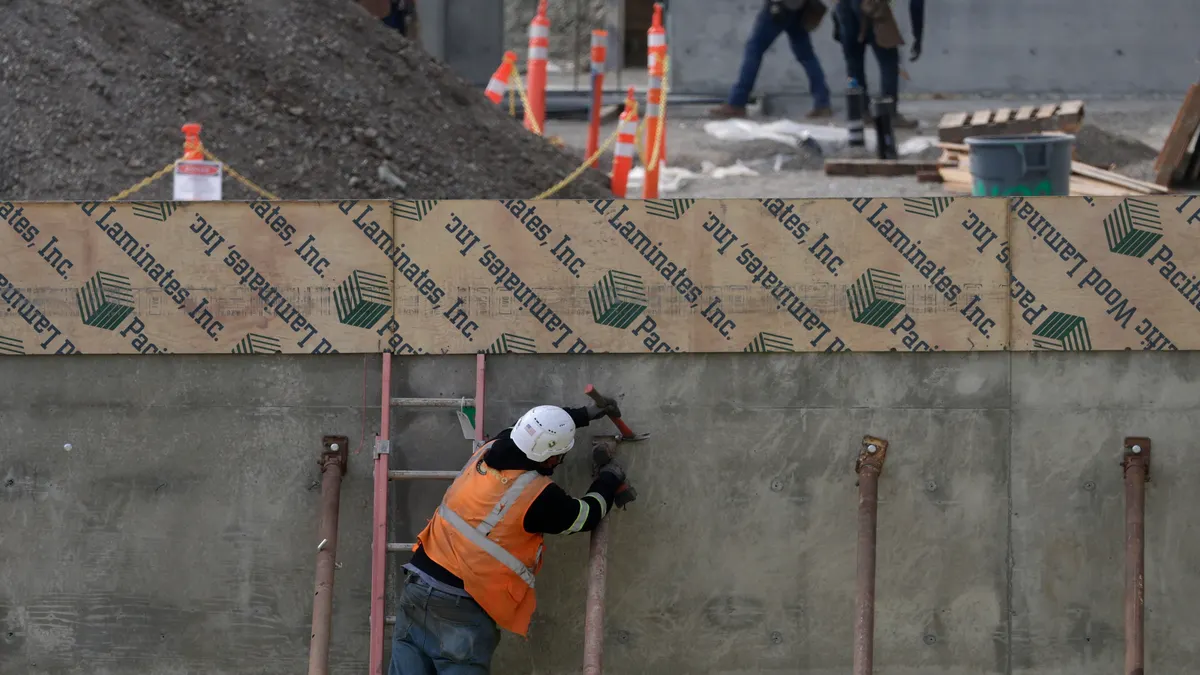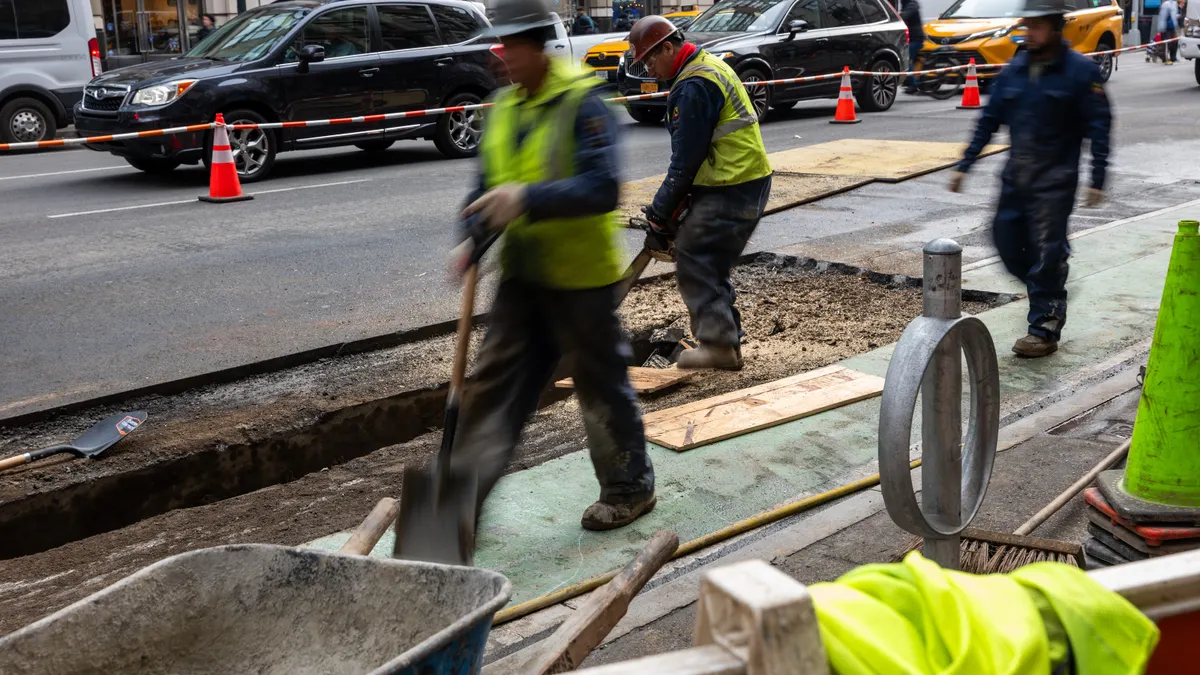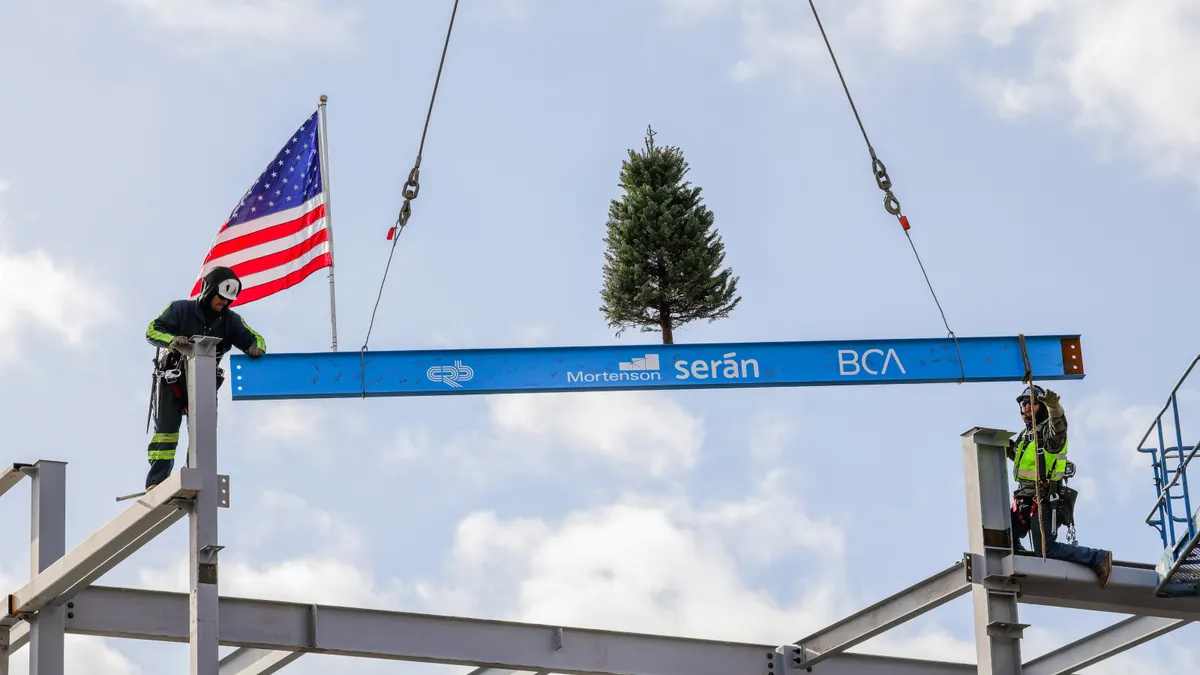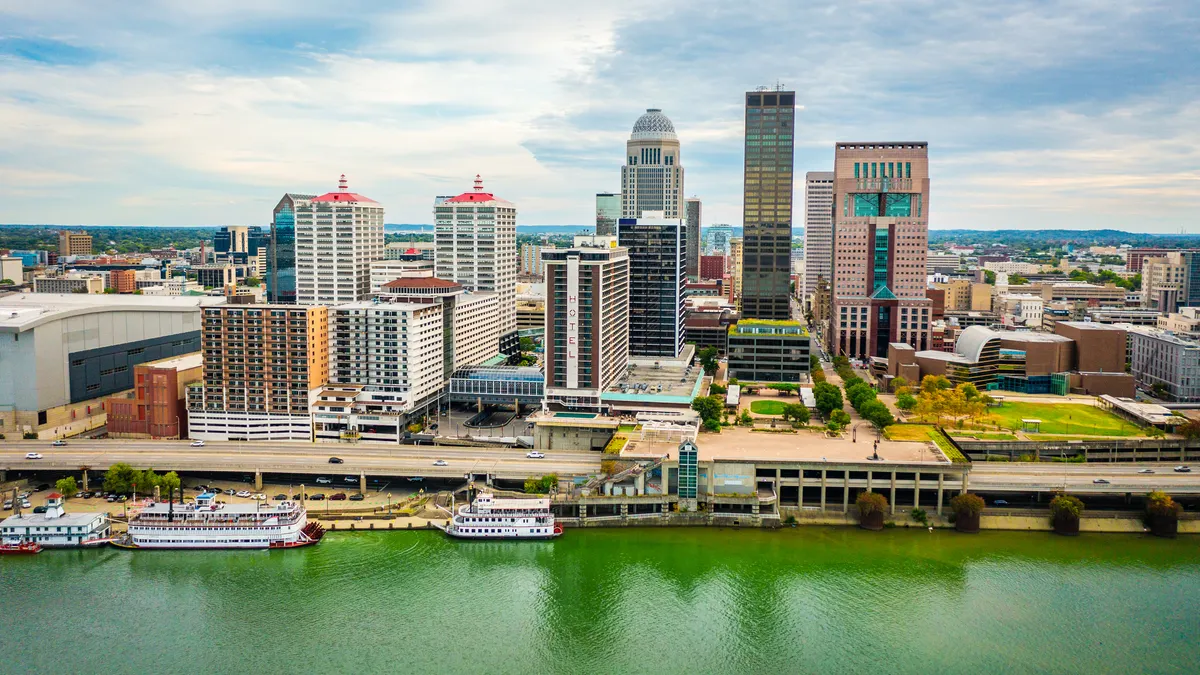Voters headed to the polls on or before Nov. 8 have an unprecedented and contentious presidential election to consider, but construction industry watchers are equally in-tune to a set of high-profile state ballot issues that stand to impact the construction industry in their respective markets and beyond.
Right to work, big-ticket spending and a more considered allocation of infrastructure dollars are all on the docket in multiple states. Below is a selection of initiatives we have our eye on. Did we miss something that’s important to your business? Let us know.
To learn more about each of these issues, check out Ballotpedia, a resource for federal, state and local ballot initiatives.
Alabama: Right to Work, Amendment 8
This amendment to the state constitution would prohibit businesses from denying individuals work opportunities based on union membership. Alabama has long been a right-to-work state. Critics of right-to-work policies contend that they decrease the power of unions — something that’s already in peril — to negotiate and provide competitive wages.
Eight U.S. states had right-to-work constitutional amendments and 17 had right-to-work statutes as of 2015, according to Ballotpedia. For the most part, those states are in the south and central-west regions of the U.S., where unions have historically had less influence. A handful of states including Ohio, Virginia and West Virginia are considering right-to-work legislation. (West Virginia, the 26th state to approve right-to-work legislation earlier this year temporarily stopped the rule in July amid pushback from unions)
Virginia: "Right to Work" Amendment
Joining Alabama in strengthening its right-to-work position, Virginia wants to make it illegal for employers to require that their workers be union members. Virginia has been a right-to-work state since 1947. Unions contend that their workforce is typically better trained and generally safer on the job site, an assertion that’s currently being scrutinized in New York as the city’s Committee on Housing and Buildings has requested that New York classify workers involved in construction safety incidents as union or nonunion.
South Dakota: Right for Organizations to Charge Fees for Services, Initiated Measure 23
South Dakota, which is a right-to-work state, has put forth a measure that would let unions, in addition to other businesses and nonprofits, charge members a fee for services related to their membership. Those opposing the measure contend that unions in that state can "currently force their reputation on workers" via the National Labor Relations Act, according to the National Review. Under Measure 23, therefore, nonunion members could be forced to pay dues, weakening right to work in the state.
"[W]e are supportive of Alabama and Virginia’s initiatives that would codify their Right to Work status in the state constitution and oppose the initiative in South Dakota that will effectively overturn the state’s right-to-work status," said Ben Brubeck, vice president of regulatory, labor and state affairs for the Associated Builders and Contractors.
Arkansas: Removal of Cap on State-Issued Bonds, Issue 3
The states aren’t waiting on Washington to come up with a comprehensive infrastructure plan but instead are forging ahead with proposals to approve big-ticket spending at home. In California, those moves are getting pushback. Arkansas, however, wants to put fewer restrictions on the value of bonds that the state can provide to the private sector or institutions to fund infrastructure development — which bodes well for large-scale projects. A "no" vote keeps the current limit on bonds that exceed 5% of the state’s annual revenue.
California: Proposition 53, Voter Approval Requirement of Revenue Bonds above $2 Billion
Requiring voters to approve state-issued bonds for projects over $2 billion, this proposition does not have the support of California Gov. Jerry Brown, who has two major infrastructure projects — a high-speed rail line from Los Angeles to San Francisco and a plan to bring water into Southern California — in the works that might not be approved if voters had the final say.
California: Proposition 51, Public School Facility Bonds
Also on the ballot in California is a $9 billion bond issue to fund renovations and new construction in K-12 schools and community colleges. This follows a $10.4 billion bond in 2006 that financed renovations to K-12 schools and community colleges in addition to state colleges and universities. Arguments for the bill include updated buildings to seismic, fire and health safety standards.
Smaller scale bonds proliferate among the state ballots this election. Rhode Island is asking voters to decide on bonds for higher education, port infrastructure and affordable housing construction. "Yes" votes would allocate between $45.5 million and $70 million, depending on the project, to fund building. On the ballot in New Mexico is a similar bond question that, if approved, would issue up to $15.44 million to fund improvements to senior citizen care facilities.
California: Proposition 64, California Marijuana Legalization
As goes California, so goes the country. And the state's stance on legal pot is expected to be no exception. The legalization of marijuana for recreational or medicinal uses is on the ballot in nine states. Arizona, California, Maine, Massachusetts and Nevada are voting on recreational use, while Arkansas, Florida, Montana and North Dakota are considering medical use, opening nearly 80 million U.S. residents to more lax pot laws, according to Ballotpedia. Twenty-five U.S. states already have laws dictating cannabis use.
As Construction Dive has previously reported, the legalization of marijuana presents opportunities for the construction of new dispensaries and housing in pot-friendly locales — Denver had $2.5 billion in construction projects underway in May that city officials said was partly due to the legalization of recreational cannabis. However, questions remain regarding employers' enforcement of banning the Schedule I drug among employees off hours, even in states where it is legal.
"We are … following ballot initiatives in nine states that would impact marijuana legalization and are committed to protecting employers’ ability to ensure that they have safe, and drug-free job sites," Brubeck said.
Missouri: Prohibition on Extending Sales Tax to Previously Untaxed Services, Constitutional Amendment 4
Legislators struggling to balance state budgets often look to taxes to make up the difference. But adding assessments to professional services like architecture and engineering "can be damaging to the profession," said Andrew Goldberg, managing director of government relations and outreach for the American Institute of Architects. With Amendment 4, Missouri wants to put a stop to state sales or use taxes on services or activities that weren’t already subject to them before January 2015. The Home Builders Associations of Greater Kansas City and Greater St. Louis have both come out in support of the amendment.
Illinois: Transportation Taxes and Fees Lockbox Amendment
Several ballot initiatives in this election aim to more clearly allocate infrastructure spending. And it’s not just about supporting infrastructure. "Most people in a vacuum would say, 'We should do more to rebuild,'" Goldberg said. "The key question is: How do you pay for it?" Amendments like the one Illinois has put forth follows similar lockbox measures in California, Maryland and Wisconsin to prevent the use of transportation funds for non-transportation projects, instead supporting its use for infrastructure in addition to transportation-related operations.
Similar measures are on the ballot this year in Louisiana and New Jersey. "You’re seeing this effort to say we have to prioritize and make sure that money raised for transportation or infrastructure goes toward it," Goldberg said.
Washington: Carbon Emission Tax and Sales Tax Reduction, Initiative 732
The country’s first carbon tax is up for consideration in the Pacific Northwest. Initiative 732 would assess a carbon emission tax on the sale or use of some fossil fuels and electricity generated using fossil fuels, and it is based on a 2008 carbon tax in British Columbia, Canada, that has since informed a decision to require all Canadian provinces to have a carbon tax or cap-and-trade program by 2018, according to the Los Angeles Times.
I-732 intends to be revenue-neutral and thus calls for lowering the state sales tax by 1% in addition to raising a tax credit for low income families and slightly lowering the business and occupation tax rate. However, critics say it doesn’t help fund the clean energy technology required to make carbon-neutral successful in the long term, according to Wired, and that it’s not actually revenue neutral and lacks bipartisan support, Utility Dive reported.





















